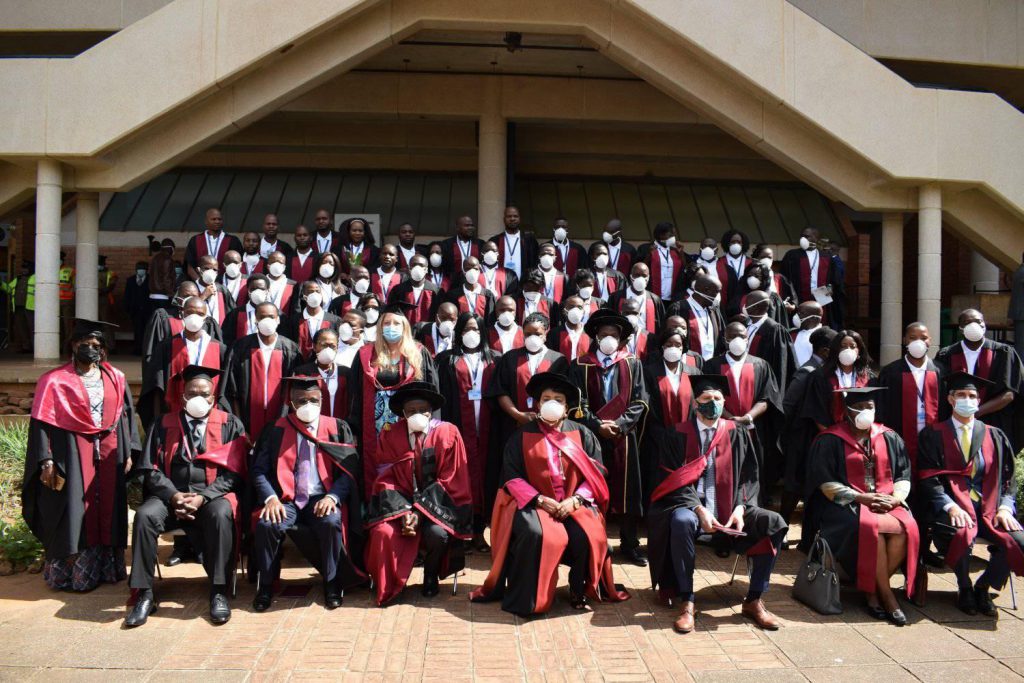
Malawi Police Equipped in DNA Forensic Investigations; 60 Officers Graduate
Published on June 11, 2021 at 7:00 AM by Flora Mitumba
At least 60 officers from the Malawi Police Service (MPS) have graduated in DNA Forensic Investigations after undergoing a fourteen weeks of intensive specialized training at the University of Malawi, formerly, known as Chancellor College.
The graduation which pass off on Wednesday at Great Hall in Zomba, was graced by the Minister of Gender, Community Development and Social Welfare, Dr. Patricia Kaliati.
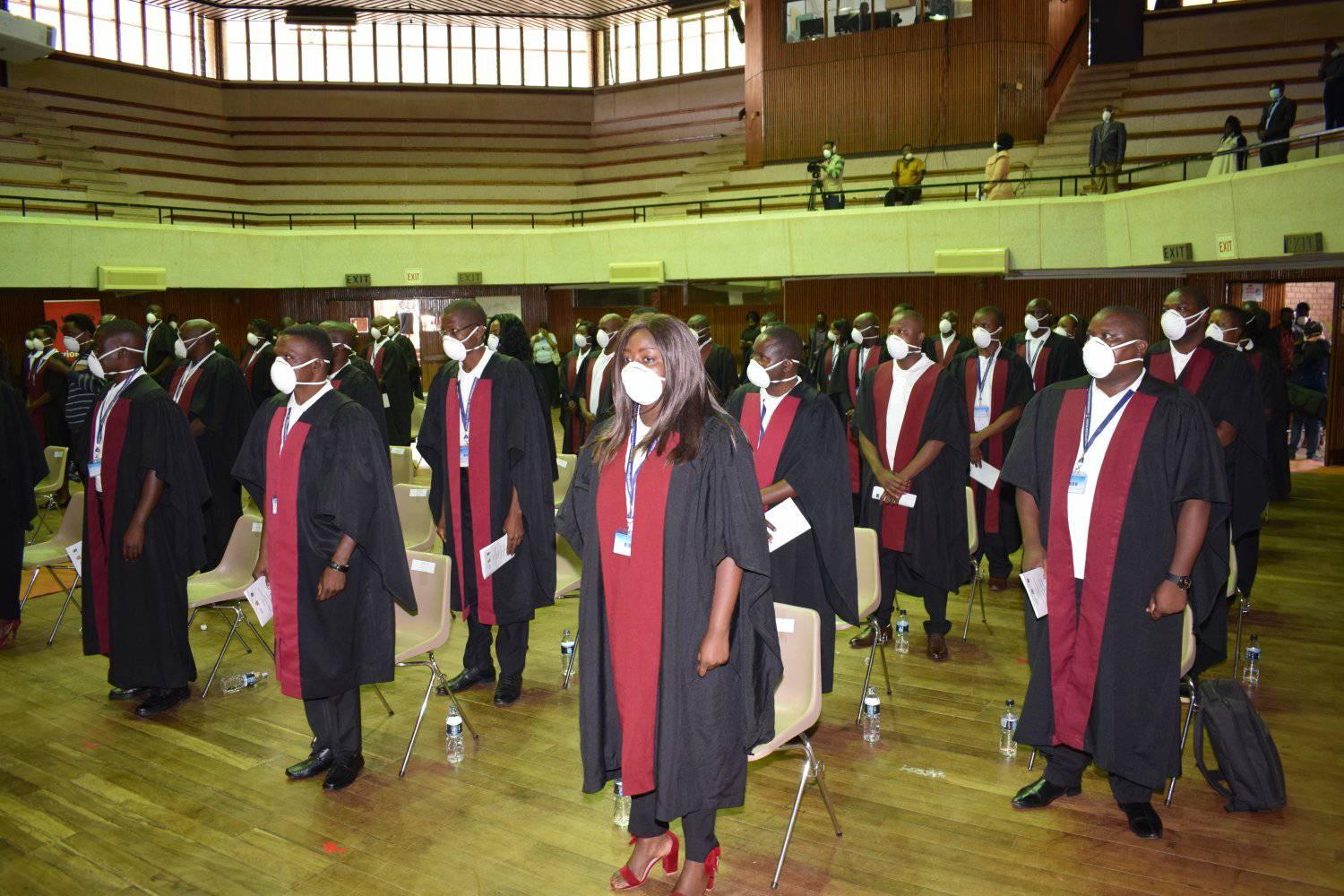
Part of graduating officers
According to Deputy National Police Spokesperson, Superintendent Peter Kalaya, the course was offered by the department of Biological Science. Following the graduation, MPS detectives, prosecutors and Victim Support Officers will be able to collect, analyze and present scientifically backed evidence in court.
Senior Supt Kalaya, also revealed that the course was funded UNDP-EU’s Spotlight Initiative, adding to that “is aimed at equipping law enforcers with specialist knowledge in investigating sexual offences such as rape and defilement.”
Speaking during the graduation, Kaliati applauded the commendable efforts rendered to the country’s police service in helping safeguarding the rights of women and children at the same time, recognizing the joint effort by the UN and EU through the Spotlight Initiative.
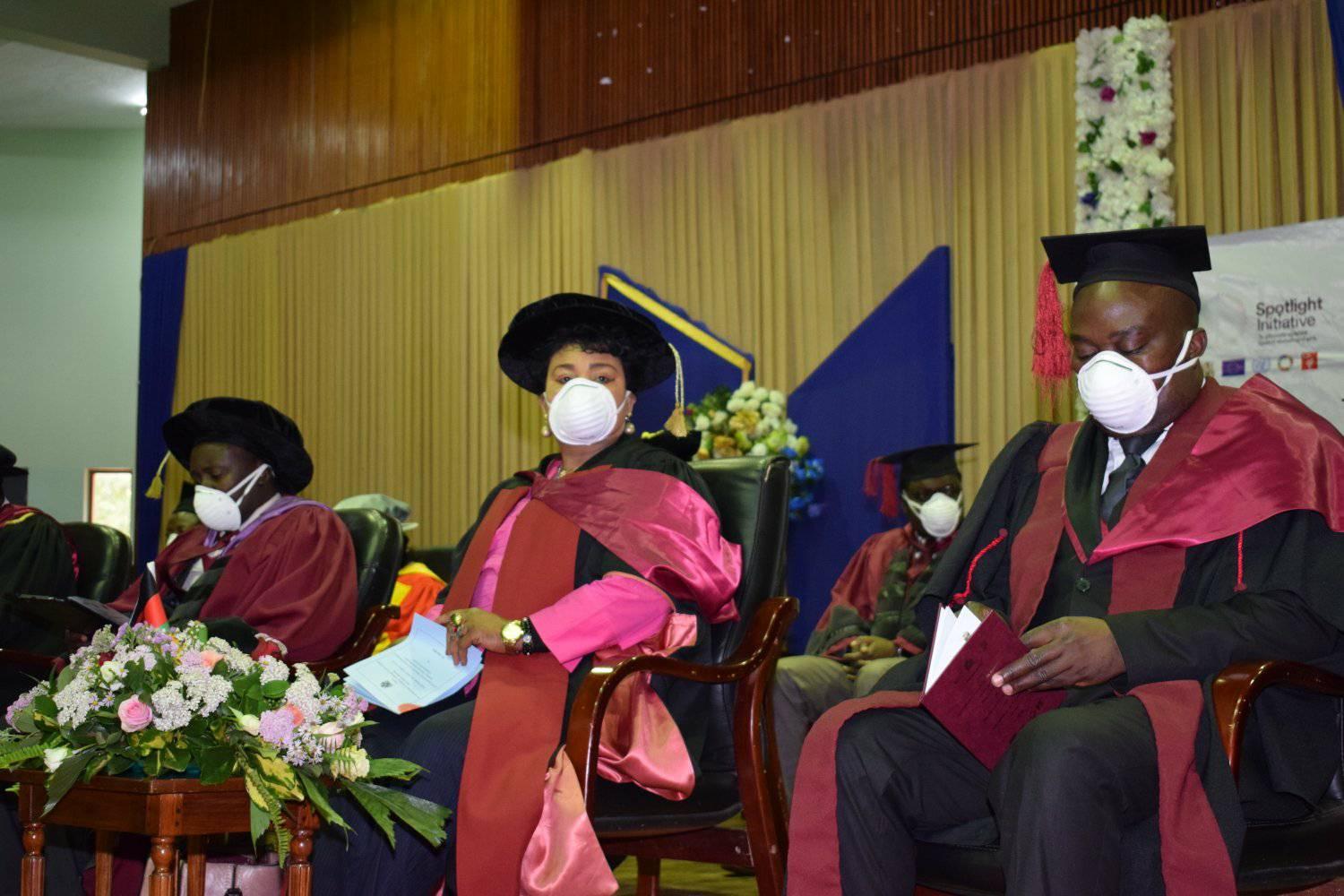
Kaliati added that she was a happy person that Malawi finally will be able to do her own analysis of DNA samples in as far as handling criminal matters are concerned.
“This course and the certification of the University of Malawi to conduct DNA forensic analysis bring hope in as far as taking down perpetrators of rape and defilement is concerned,” she said.
Deputy Inspector General of Police responsible for Administration Merlyn Yolamu said the Police is grateful with the support from the Spotlight Initiative and promised to fully utilize the trained police officers in investigating and prosecuting various cases happening in Malawi.
“We take this training as a means and not an end in itself. Be assured that your resources have not been put to waste,” she said.
One of the graduating students, Sergeant Charles Chilala, a police prosecutor from Mzuzu Police Station was on cloud nine after the ceremony, promising to put to use what he acquired over the training period.
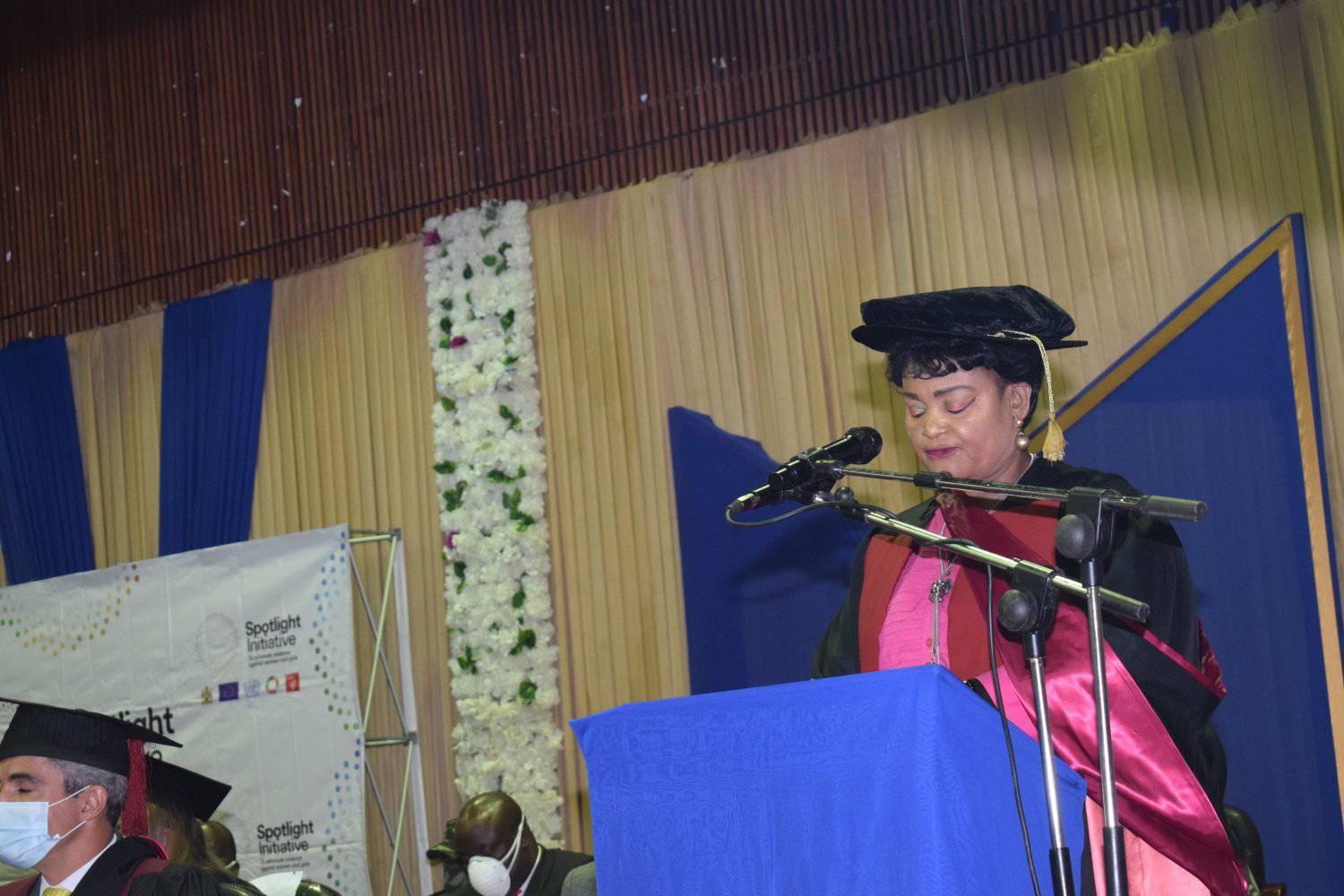
Dr. Kaliati delivering her remarks
“This is the best training that I have ever attended in my life. I enjoyed the practical sessions more. I can’t wait to go back and put to use the skills and expertise I have gained from this course.”
The training was done in two phases of two cohorts and it run from November 25, 2020.
Among others, the course covered various aspects of sexual crime scene investigation such as evidence detection, collection, preservation and its scientific analysis, forensic anthropology, entomology, pathology and toxicology, professional ethics and scientific evidence in court.
UN and EU have since indicated that they have plans to provide further support to train other players in the criminal justice system for easy and proper coordination in the use and admissibility of DNA and forensic evidence in courts.
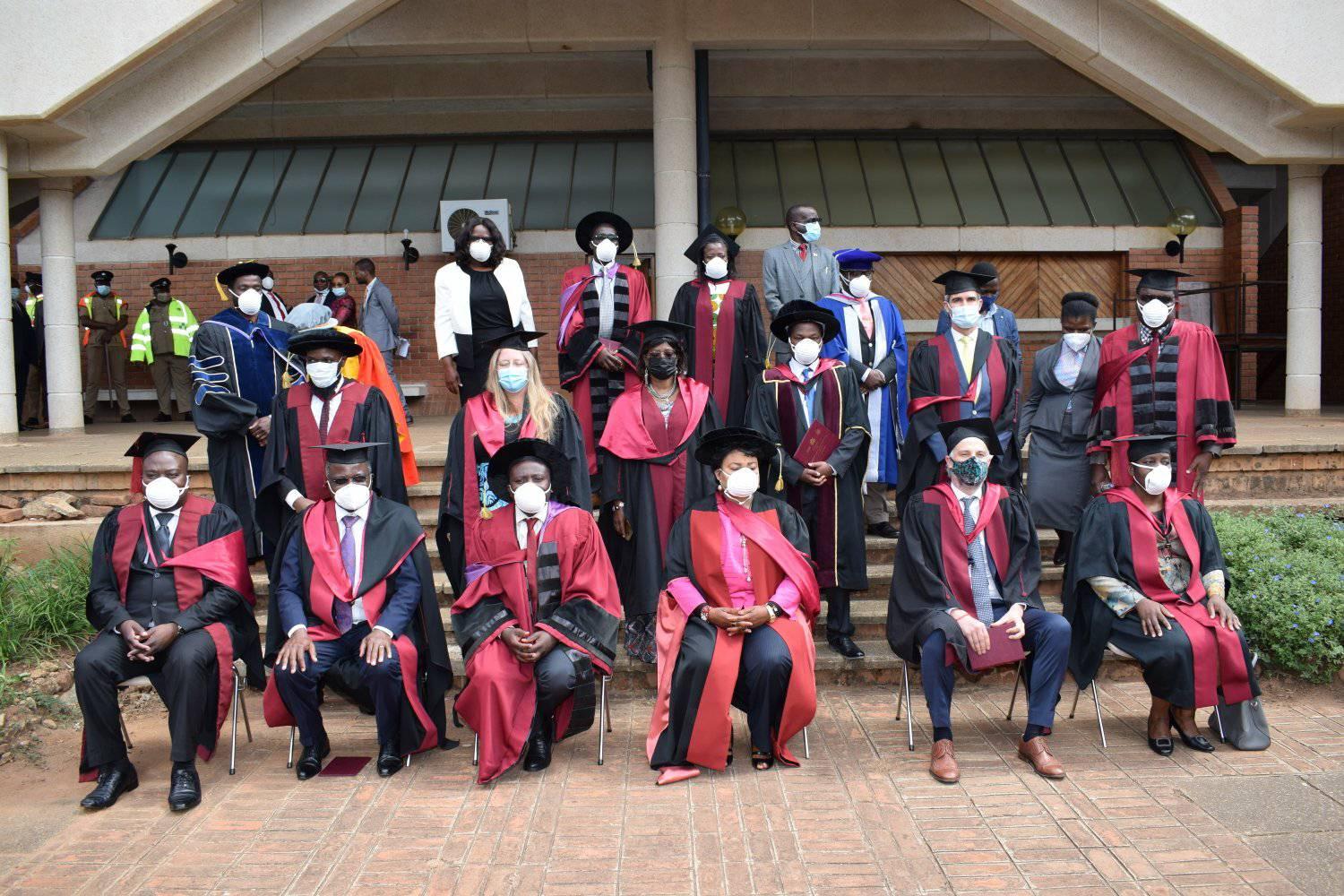
“Skills gained in this training are applicable to other areas of inquiry such as wildlife tracking, immigration testing, parentage analysis and military dog tags,” Senior Supt Kalaya said.
Other high level dignitaries at the function included UN Head of Resident Coordinator’s Office Max Bonnel, EU team leader for Social Sectors Michelle Crimella, Judge President of the High Court Justice Sylvester Kalembera and Solicitor General Reyneck Matemba.


